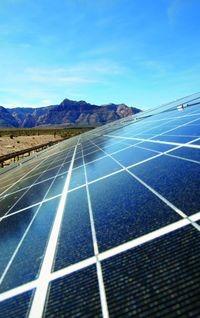As South-East Asia grapples with the urgent need to balance sustainability goals with rapid urbanisation, the region’s abundant resources present a compelling opportunity to leverage biomass energy for meeting its growing energy demand. By Xiangnan Li, executive director, project finance, Joelle Chin, vice-president, project finance and Lakshmi Natarajan, vice-president, project finance, DBS Bank
Globally, modern bionenergy dominates renewable energy, accounting for 55% of renewable energy and more than 6% of the global energy supply, according to the International Energy Agency1. Yet its application in urban settings remains limited. One company stands at the forefront to capitalise on this opportunity.
Singapore-based renewable power generator, Rexus Bioenergy, a joint venture between V8 Environmental and Sobono Bioenergy, has invested in an often overlooked waste-wood-based bioenergy project in Singapore.
In October 2024, Rexus Bioenergy unveiled its plan to construct a waste wood-to-energy biomass power plant in Jurong, Singapore. The plant will use waste wood from discarded pallets, packing materials, and construction debris among others, to power Singapore’s first circular biomass power plant.
Named the RExus Waste Wood-to-Energy Plant, the 13MW biomass power plant is capable of processing at least 100,000 tonnes of plant and wood waste per year. The plant is slated for completion in the second half of 2026, and it will also explore using carbon capture technology on a pilot basis to support Singapore's net-zero ambitions.
The RExus Waste Wood-to-Energy Plant represents two groundbreaking firsts: It embodies the city state’s first circular biomass power plant, which is the first-ever biomass project financed under a project finance structure in Singapore. This transaction pushes the envelope in the project financing landscape in Singapore.
DBS Bank’s value-add was the optimisation of the project's financial structure to optimise the projects debt capacity and structuring terms that ensured an efficient risk allocation that met the interests of all stakeholders. The financing solution could be a bellwether for structuring similar projects across the region.
Project highlights
RExus's Waste Wood-to-Energy Plant comprises a wood-chip-fired steam boiler, which runs a steam turbine to generate up to 13.2MW of power. It uses a condensing steam turbine technology to optimise electricity generation.
The project will recycle and process at least 101,000 tonnes of plant and wood waste annually including discarded pallets, packing materials and construction wood. In addition to generating about 90,000MWh of green power per annum, byproducts such as ash will be repurposed into materials such as potassium fertiliser and compost.
The plant will integrate advanced energy-technology, achieving on average 8% higher energy efficiency compared with similar facilities.
The plant is a flagship project of the sponsors, V8 Environmental and Sobono Bioenergy, which have existing expertise in the waste management sector in various capacities.
Sobono brings proven experience in developing and operating biomass energy plants, while V8 offers two decades of experience in wood waste generation and supply to one of the largest power generation companies in Singapore.
Energy generated by the plant and associated Renewable Energy Certificates is secured through a 10-year virtual power purchase agreement (vPPA) with Pacific Light, ensuring long-term economic viability for the project. The electricity produced will partly power Google’s data centre operations in Singapore.
A bankable framework
The structure is based on a bankable project finance structure underpinned by a balanced risk allocation between various parties.
* Strategic joint venture – An alignment of the interests of Sobono Bioenergy and V8 underpins the partnership for this project. For V8, Rexus represents a downstream integration to tie in with its strategy of becoming an integrated end-to-end waste management company. Having their own WTE plant to consume the wood waste enables them to move up the value chain and realise cashflows and value from the sale of electricity and RECs. For Sobono Bioenergy, the project is an upscaling from being an EPC contractor to an owner and operator of a marquee project;
* Strong and reliable power purchase agreement offtaker and project cashflows – 10-year PPA agreement signed with PacificLight Energy with back-to-back agreement with Google (investment grade, AA by S&P) for its data centre operation;
* Optimising the debt sizing – The capital structure of the project was the key to the financial structuring. DBS Bank advised on precedent transactions and market norms to size the debt for a project of this nature. DBS Bank also advised on the commercial structure of the vPPA to help optimise the debt profile while making it attractive to financiers;
* Adequate feedstock supply – Sufficiency of good quality wood chip supply is supported by the increasing land development and construction projects in Singapore. With more than 30 years of waste management expertise and industry knowledge to effectively segregate wood from waste materials, V8 has been delivering a constant supply of quality wood chips to local co-generation plant for the past decade;
* Enterprise Finance Scheme (EFS) cover – The project qualifies for the Enterprise Finance Scheme under EnterpriseSG, which has a mandate to enable Singapore incorporated SMEs to access financing more readily. EnterpriseSG provides credit insurance cover, encouraging financial institutions such as DBS Bank to provide financing for SMEs willing to take up the initiative to create a circular economy contributing to Singapore’s sustainability goals.
Waste woodchip biomass will be produced by a waste wood collection and waste woodchip biomass feedstock processing plant, which is under construction and is co-located with the WWtE plant. The waste woodchip biomass will be supplied to the WWtE plant by one of the sponsors, V8.
The WWtE plant will utilise the waste woodchip biomass for the dispatch and sales of power and Renewable Energy Certificates (RECs) to the Energy Market Company of Singapore. A vPPA is entered into between Rexus Bioenergy and PacificLight Energy, which in turn has a back-to-back PPA with Google for its data centre operation in Singapore.
The biomass power plant employs a well-proven technology, including a high-pressure steam boiler and steam turbine, with an air-cooled condenser system for condensing exhaust steam. The flue gas treatment system uses a bag house filter to capture particulate matter, ensuring compliance with environmental regulations.
Supporting sustainability goals
Bioenergy is emerging as an important component of Singapore’s efforts to transition to a low-carbon and sustainable energy system. With growing climate commitments, bioenergy offers a complementary solution to diversify the energy mix and support a circular economy, the application of which extends beyond Singapore.
According to estimates by the National Environment Agency (NEA), Singapore generated more than 703,000 tonnes2 of plant and wood waste in 2023, representing about 10% of its total waste. This amount is projected to increase as the nation's tree population grows.
The new biomass power plant fits in NEA’s circular waste valorisation strategy, where increasing levels of wood waste can be diverted to generate "green" power in the RExus Waste Wood-to-Energy Plant. Recycling wood waste as a fuel source significantly reduces carbon emissions. Scaling up solutions to better address plant and wood waste will help reduce the burden on the country’s landfills and contribute towards a more sustainable future.
This project financing underscores DBS Bank’s commitment to driving sustainable finance while supporting innovative renewable energy projects that align with Singapore’s Green Plan 2030.
The Project is a beneficiary of the Enterprise Financing Scheme3, which is a comprehensive tool to enable Singapore enterprises to access financing more readily across all stages of growth. Enterprise Singapore also provides a 70% cover on the financing.
South-East Asia’s circular economy
Singapore’s bioenergy push has implications far beyond its borders. For South-East Asian nations, where agricultural and forestry residues are abundant, the Rexus Bioenergy Project represents a scalable blueprint. This project financing solution could serve as a pathfinder for structuring similar projects, playing a pivotal role in advancing biomass energy technologies and practices across the region.
Conclusion
With strategic alignment, leveraging of strengths, assured revenue streams, structured debt, reasonable construction schedule, risk-sharing support, and feedstock adequacy, the project stands as a highly bankable project finance loan. DBS Bank played a critical role in working with Rexus Bioenergy through all stages of the project over the past two years to deliver a bankable structure.
The advancement of Singapore's WWtE biomass sector offers promising financing opportunities, but success requires navigating the specific challenges using a strategic approach.
A comprehensive understanding of available funding sources, combined with a robust project plan and effective risk management, will be vital for successfully securing the necessary capital to drive the growth of this promising sector.
Strong project financials, clear environmental benefits and a well-structured financing strategy are key to attracting investors. The experience and knowledge gained from this project will enable DBS Bank to replicate its approach for future waste-to-energy projects and reaffirms DBS Bank’s commitment to sustainability, SME empowerment, and advancing Singapore’s Green Plan 2030.
Footnotes
1 – https://www.iea.org/energy-system/renewables/bioenergy capital, loans, fixed asset loans, venture debt loans, trade loans, project loans, as well as Merger and Acquisition loans.
2 – https://www.nea.gov.sg/our-services/waste-management/waste-statistics-and-overall-recycling.
3 – EFS supports to address enterprises’ financing needs: green loans, working capital, loans, fixed asset loans, venture debt loans, trade loans, project loans, as well as Merger and Acquisition loans.
To see the digital version of this report, please click here.
To purchase printed copies or a PDF of this report, please email leonie.welss@lseg.com














